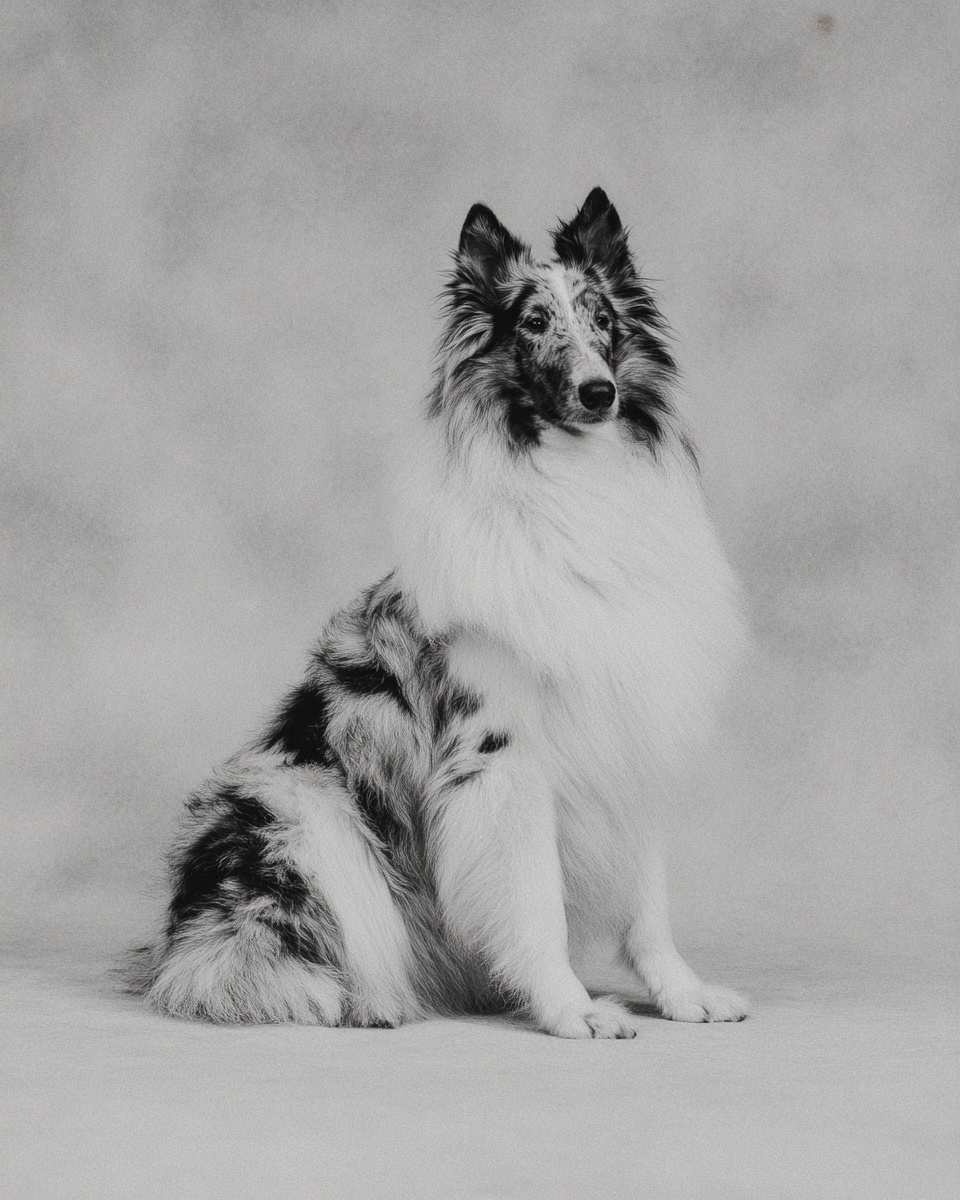Collie

Description
The Collie originated in the Scottish Highlands and Northern England, bred primarily for herding sheep and cattle. Its name likely stems from "colley," a type of black-faced sheep they once managed. Queen Victoria’s fondness for the breed during her Balmoral Castle visits helped boost its fame. Collies descend from dogs brought by Romans around the 1st century CE, mixed with local breeds to form today’s elegant herding dog. Collies are gentle and family-focused, thriving in homes with children and other pets. They respond well to training and enjoy activities like obedience and herding trials. Their sensitivity to human emotions makes them excellent therapy companions. However, they need consistent mental and physical challenges to prevent boredom and maintain balance. Individual personalities vary, so owners should tailor care to their dog's unique traits.
Grooming
Collies have two coat types: rough (long) and smooth (short), with colors ranging from sable to blue merle and white patterns. The rough coat requires weekly carding to remove dead hair, using a light slicker brush gently to avoid damage. Handstripping every 8 to 12 weeks preserves the coat’s texture and vibrant colors, especially important for blue merle markings to maintain their distinctive look. Smooth coats shed less but still benefit from regular brushing to reduce loose fur and keep skin healthy. Pay attention to white areas, which can stain easily and need prompt cleaning. - Weekly carding for rough coats - Gentle slicker brush use - Handstrip every 2–3 months - Spot clean white patches - Check ears and paws regularly Pro tip: Use a rubber curry comb on smooth coats to boost circulation and remove dead hair without irritating the skin.
Learn the Rough routine:
→ Complete Rough Grooming Guide
Walking
Collies require about 100 minutes of walking daily, split into two sessions to manage their stamina and focus. Morning walks can be brisk 45-minute sessions to expend energy, while evening strolls of 55 minutes help calm their minds before bedtime. These walks should include varied routes and opportunities for sniffing to engage their herding instincts and curiosity. Incorporate short training breaks or recall games during walks to stimulate their intelligence and responsiveness. Example routine: - 7:00 AM: 45-minute brisk walk with recall drills - 6:30 PM: 55-minute relaxed walk with scent exploration This schedule balances physical exercise with mental engagement, reducing excessive barking and restlessness at home.
Boarding
When boarding a Collie, provide a crate sized between 42 and 48 inches to accommodate their 50–75 pound frame comfortably. Collies enjoy interactive play, so staff should schedule two active play sessions daily, incorporating scent and brain games to keep them mentally sharp. Their herding background means they thrive on structured activities and clear routines, so consistent staff interaction is crucial. Enrichment items like puzzle feeders or scent trails help prevent boredom and reduce stress during their stay. Staff should note that Collies can be vocal, so calming techniques and quiet time are important. Monitor their social interactions carefully, as they prefer familiar companions and may be reserved with strangers. A well-planned boarding experience respects their need for mental stimulation and physical activity, ensuring they remain content and well-adjusted while away from home.